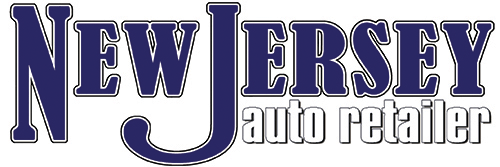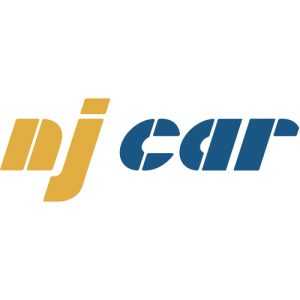New Jersey dealerships know the importance of an injury-free workforce and do a lot to ensure employee safety. A fully present and functional workforce delivers improved customer service, increases productivity, and significantly reduces costly waste and expense. Getting employees to follow safety policies is challenging, and the enforcement and compliance burden, unfortunately, lies mainly with the employer. The Occupational Safety and Health Administration (OSHA) has recently increased the frequency of its inspections. OSHA continues to increase the maximum penalties for major and minor compliance violations (ranging from $15,000 per violation to $150,000 plus for willful/repeated violations). Dealerships assessing workplace risks and specific job hazards can better manage many common OSHA regulation pitfalls.
Each year, OSHA releases a list of violations cited most frequently during the previous inspection year. The most common violations that apply to dealerships provide a practical starting point for managers working to meet annual compliance requirements:
Hazardous Communications
The Hazardous Communications standard applies to employees who use or encounter hazardous chemicals. Employers must have a written hazardous communications plan and share it with employees. Training must occur upon hire, when introducing a new chemical, or when employees are not using chemicals safely. Employers must document all training, keep an up-to-date list of hazardous chemicals, and provide updated Safety Data Sheets (SDS).
Respiratory Protection
The Respiratory Protection standard references using ventilation and respirators to control occupational diseases caused by breathing air contaminated with “harmful dusts, fogs, fumes, mists, gases, smokes, sprays, or vapors.” Employers must have a written respiratory protection program wherever these dangers are known to contaminate the air. Training must be completed annually, upon a new hire, or whenever a new exposure requires changes.
Control of Hazardous Energy
The Control of Hazardous Energy standard covers “the servicing and maintenance of machines and equipment … [and the] release of stored energy [that] could cause injury to employees.” Such equipment can include vehicle lifts, grinding wheels, and any other equipment in disrepair that uses an energy source. Managers should follow all Lock Out Tag Out (LOTO) procedures outlined by this OSHA regulation.
Machine Guarding
All machines must be maintained with guards as intended by the manufacturer. Guards should never be removed or altered, and employers are required to train employees to follow all manufacturer guidelines on safely using machine guarding equipment. Dealerships that use grinders should check grinding wheels, ring test wheels periodically, bolt them to a platform or floor, and calibrate the guards as OSHA requires.
Powered Industrial Truck (PIT) (Forklift)
The specifics of this OSHA standard depend on the type of PIT used, but all standards require that the forklift is in good working order and that safety protections are available. To become authorized to operate PITs, operators must undergo initial training and certification and then re-train and re-certify every three years.
Personal Protective Equipment (PPE)
Employees are required to use Personal Protective Equipment that protects eyes, hands, and body whenever exposure to injury exists in a specific job function. Proper footwear should provide slip resistance and adequate foot and ankle support to protect employees from falling or rolling objects. Employers can review the standards to see what PPE they shall provide versus what the employee can provide before deciding what is appropriate.
Walking/Working Surfaces
Outdoor lots and indoor walking areas should be free of potholes and uneven surfaces. Employees should keep indoor floors free of any obstacles that create tripping hazards, keeping them dry and clean as much as possible. In the shop, organized workspaces result in far fewer accidents than disorganized ones. In dealerships, curling and buckling rugs, mats, and slippery floor surfaces are notorious for causing falls. During inclement weather, dealers are encouraged to use “Caution Wet Floor” signs in all affected areas. Dealers should also treat outdoor lots to prevent slips and falls during inclement weather and freeze-thaw cycles. It is helpful to remind employees to keep emergency exits clear and unlocked to provide easy access to them, and all exits should be marked.
OSHA National Emphasis Program — New in 2022
OSHA’s National Emphasis Programs focus on specific safety and health hazards. One of these programs focuses on indoor and outdoor temperatures contributing to heat illness. The program took effect in April 2022 and runs until 2025. Dealerships are most vulnerable to inspection when the heat index (high temperature with high humidity) stays above 80 degrees Fahrenheit over multiple days. This past summer, New Jersey experienced several “heat waves,” resulting in surprise OSHA inspections.
Dealers can prepare for the next summer by:
- Developing a written heat illness prevention program;
- Providing employees with air-conditioned or shaded areas if they start feeling unwell;
- Training employees on the signs and symptoms of heat illness;
- Encouraging open communication about heat illness; and
- Providing cool water or electrolyte-infused drinks for employees during heat waves.
Dealerships face a myriad of regulatory and compliance minefields when it comes to OSHA and other regulatory agencies. Compliance can be tricky, but it is possible to stay out of trouble with some planning. Dealerships that address common exposures and put effective safety policies, procedures, and training in place are far less likely to experience an OSHA inspection.
For more information about anything discussed in this article, OSHA compliance or general insurance questions, please contact me at (609) 883-5056, x314 or via email at crusso@njcar.org.








